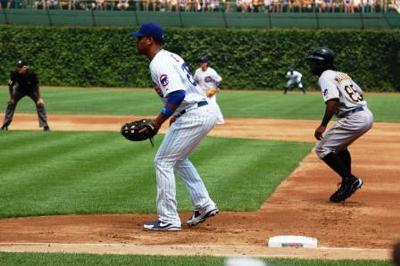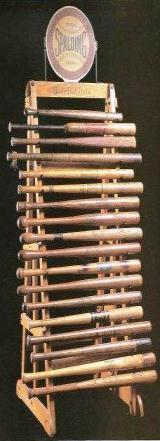Runner on first,ground ball to second the runner on first never left the base. We threw to first to force the batter. Isn't the runner on first supposed to vacate the base? Ken
by Ken
(N.J.)

Photo bill Stanton: Checkswing.com
Ken asked: Baserunning rules: Runner on first, ground ball to second, the runner on first never left the base. We threw to first to force the batter.
Isn't the runner on first supposed to vacate the base?
Rick answered: Great question Ken.
I don't believe I have ever seen this particular situation come up anywhere. Has had me scrambling to locate a ruling for what you described.
Rule 8 Baserunning-8-2-Art 8...A runner acquires the right to the unoccupied base if he touches it before he is out. He is entitled to this base until he is put out, or until he legally touches the next base while it is unoccupied, or until a following runner is forced(2-24-1) to advance to the base he has occupied.
Rule 8-Baserunning-Section1 When a batter becomes a runner: Art 1... A batter becomes a runner with the right to attempt to score by advancing to first, second, third and home bases in the order listed when:
a. he hits a fair ball
1. He becomes a batter/runner when entitled to run.
When the batter hit the ground ball to second, the runner on first is forced to leave his base, as the batter/runner is forced to run because he hit a fair ball.
When the second baseman threw to first for the out on the batter/runner, it would remove the force on the runner at first.
If the first baseman tags him at first base, I believe he should be out. The defense is not able to throw to second base to get the force out, as that was already removed.
The only other possibility would be that, as long as he was in contact with first base, and the force was removed, he no longer had to vacate.
I could find no definitive rule to cover this.
Sounds like he wasn't called for interference because he was standing on first base when the throw came in.
I would be interested in hearing some more detail on the play and what call the umpires made.
From a coaches standpoint, it is a good idea to teach players to tag everybody in a situation such as this, and let the umpires sort it all out.
You've got to love some of the quirky situations that evolve during baseball games.
Yours in baseball,
Rick
|



